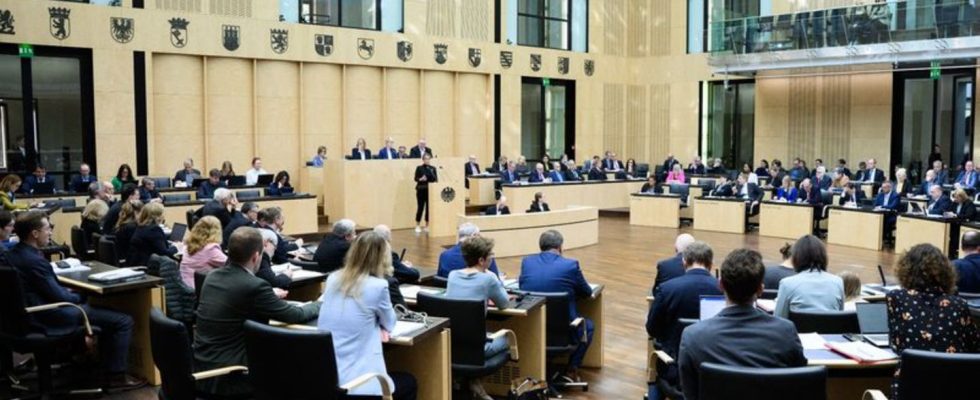Laws
Federal Council approves payment card for asylum seekers
The Federal Council today approved several federal government laws without much debate. photo
© Bernd von Jutrczenka/dpa
It rarely happens that no Prime Minister speaks at a meeting of the Federal Council. It was like that on Friday. However, the state chamber was not idle.
Payment card approved for asylum seekers
The payment card for asylum seekers, which has long been controversial in the traffic light coalition, was passed without much debate. It was about a federal legal framework for such cards, which some states have already introduced. In the future, asylum seekers should receive part of the state’s living expenses as credit on the card. There should be fewer cash payments. Among other things, this is intended to prevent migrants from transferring money to smugglers or family and friends abroad.
They can decide for themselves whether they actually introduce the card and how they plan to use it. In recent months, politicians from the Green Party in particular have called for the draft law to be formulated in such a way that a significant restriction on the rights of refugees in individual regions is ruled out.
Hydrogen core network can be built
The Federal Council paved the way for the development of a hydrogen core network in Germany by passing an amendment to the Energy Industry Act. The hydrogen core network is to be financed privately – with state security. It is intended to include the most important lines of the hydrogen transport and import infrastructure. A total of 9,700 kilometers of lines are planned. For the most part, this is a repurposing of the current gas network.
The hydrogen core network is intended to connect large hydrogen consumption and production regions in which there are large industrial centers, storage facilities and power plants. According to the Ministry of Economic Affairs, the lines will essentially be put into operation gradually between 2025 and 2032. Investments of around 20 billion euros are expected.
Less electronic waste thanks to standardized charging cables
Uniform charging cables for all cell phones, tablets and game consoles will also be mandatory in Germany at the end of the year. The Federal Council approved changes to the Radio Equipment Act. USB-C will become the standard for charging smartphones, digital cameras, headphones, e-readers or navigation devices at the end of the year. From 2026 this will also apply to laptops. This technical standardization is intended to relieve people’s financial burden and at the same time avoid unnecessary electronic waste. Devices can now also be sold without a new power supply.
Digital Services Act approved
The Digital Services Act also passed the state chamber without any problems. It creates a coordination office within the Federal Network Agency that is intended to ensure transparency and fairness and centrally supervise providers of digital switching services. The body will also oversee the enforcement of the EU’s Digital Services Act. Users can contact the coordination office directly with complaints. The law also provides regulations for the protection of minors in the digital space. The Federal Center for Child and Youth Media Protection should monitor that they are adhered to.
Strategy for better drug supply
The states called on the federal government to present a national strategy for better drug supply. According to the adopted resolution, this applies above all to medicines for children and young people. The countries want regulations for the import and storage of urgently needed medicines to be relaxed. Pharmacies should be given greater scope for action when exchanging medicines. For the care of children and young people, pharmacies and drug manufacturers should be able to produce and market fever juices and suppositories using standard approval in an unbureaucratic manner in order to meet increasing demand.
With this initiative, the state chamber is reacting in particular to the shortage of medicines for children in the winter of 2022/2023. At that time there was a week-long shortage of fever juices and suppositories, among other things.

